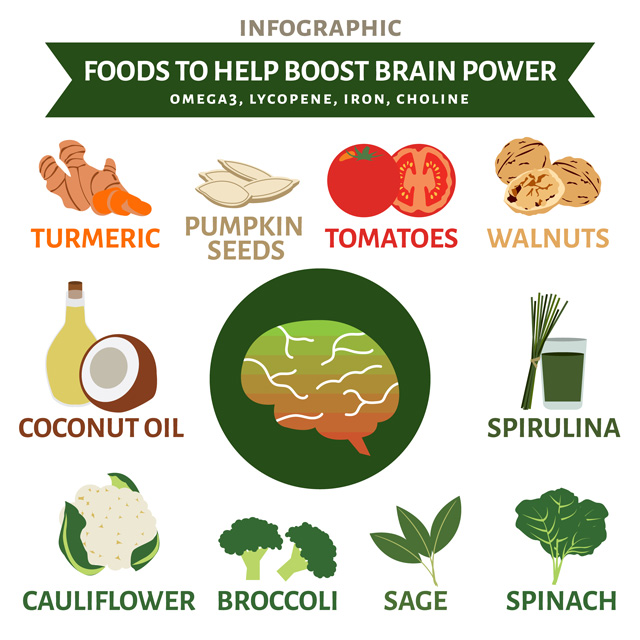Vitamin K's Anti-Aging Effects on the Brain

There is a large concentration of vitamin K in the brain, mostly in the form of vitamin K2. Studies suggest that diets high in vitamin K actually promote vitamin K2 to accumulate in the brain. Moreover, diets low in vitamin K over the long-term are linked to cognitive impairment in animal studies.(4, 22, 24, 105)
Research suggests that vitamin K and vitamin K2 can help keep the brain healthy during aging. In fact, a study on nutrition and aging found that higher vitamin K levels in the blood were linked to better verbal memory in men and women aged 70-85 years old. But how does it work?(22, 24, 27, 106)
Vitamin K-Dependent Proteins
Some of vitamin K's protective effects in the brain are related to the vitamin K-dependent Gla proteins. Research confirms that Gas6, one such Gla protein, is associated with brain health. Gas6 is active in brain cell growth and survival, and studies show that mice with mutated Gas6 receptors have severe neurological abnormalities.(22, 27, 105)
This has led some researchers to speculate that Gas6 may have a role in both Alzheimer's and Parkinson's diseases. However, many investigations also suggest that a number of vitamin K's benefits to the brain may be independent of Gla proteins.(22, 27)
For example, studies have shown that both vitamin K1 and K2 strenuously block injury and brain cell death caused by free radicals. Drugs that inhibit vitamin K-dependent enzyme activity did not block vitamin K's antioxidant protection of these brain cells. This indicates that vitamin K's antioxidant protection is a non-Gla function. However, Gla6 is involved in regulating cells that produce myelin, an important protective structure in brain cells.(27, 105)
Myelin and Vitamin K
The brain has a larger number of lipid molecules called sphingolipids. These serve as major signaling molecules between cells, and are predominately in the myelinated areas of the brain.(4, 22, 24)
Why Are Sphingolipids Important?
Aging and age-related brain disorders (such as Alzheimer's disease) are linked to dysfunctional sphingolipid metabolism. Sphingolipids help maintain myelin, the protective sheath covering nerve cell axons. Axons are the thin tail-like extensions from the neuron body that electrical signals travel over.(24, 62, 105)
In fact, studies have shown that the gene variation that predisposes people to early onset of Alzheimer's disease leads to the degeneration of myelin. Conversely, the typical variation of this gene produces a protein that is critical to the transport of sphingolipids (particularly sulfatide) to maintain and repair myelinated areas of the brain.(62)
Vitamin K Influence on Sphingolipids
Diets with adequate to high levels of vitamin K promote vitamin K2 in the brain. Conversely, animals fed diets low in vitamin K over their lifetime showed low levels of sulfatide in the brain. Low vitamin K also resulted in high levels of the types of sphingolipids that are linked to cognitive impairment.(105)
Animal studies show that the vitamin K2 helps regulate sulfatide production in the brain. This suggests that vitamin K and vitamin K2 could help keep myelin healthy and protect brain cells.(24, 105)
Vitamin K's Antioxidant Effects on the Aging Brain
Glutathione (GSH) is a powerful natural antioxidant in our bodies. Not only does GSH act as an antioxidant, it is also an anti-inflammatory and antitoxin enzyme. Severely deficient levels of GSH leave brain cells vulnerable to free radical attack and cell death. In animal studies, inhibiting GSH causes neurological disorders.(28)
Research strongly suggests that GSH depletion is related to neurodegenerative diseases like Alzheimer's, Parkinson's, and Lou Gehrig's disease (ALS). The good news is that vitamin K1 and vitamin K2 may help.(27, 28)
How Does Vitamin K Work to Protect Brain Cells from GSH depletion?
Research shows that low concentrations of vitamin K1 or vitamin K2 protect neurons. The 2 forms of vitamin K also protect myelin-producing cells from cell death linked to GSH depletion.(27)
The protection seems to only be dependent upon the dosage. Better yet, vitamin K's protection of brain cells does not appear to be affected by even high doses of anticoagulant drugs (e.g., warfarin) that block vitamin K-dependent proteins.(27)
Vitamin K Blocks Free Radicals
In this experiment, vitamin K offered no protection against sudden and severe oxidative injury. It also did not prevent the depletion of GSH. Instead, vitamin K blocked the production of the free radicals that cause oxidative damage and cell death.(27)
The clinical implications of the potent antioxidant protection by vitamin K are profound, especially since it has been proven to easily cross the blood-brain barrier (as shown by the successful use of vitamin K to prevent bleeding in the brain of preterm babies). These study results suggest that vitamin K may offer preventative and therapeutic benefits for neurological diseases linked to the depletion of GSH.(27)




